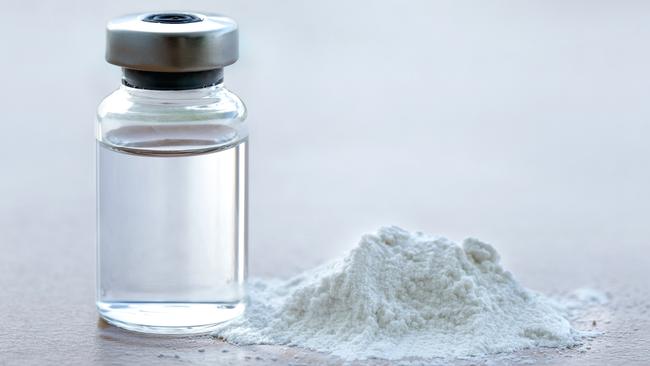Ketamine may have ‘powerful effect’ on depression, researchers urge it to be covered by Medicare
An Australian study has found a notorious party drug may help depression sufferers, with top researchers urging it be placed on the Medicare rebate scheme.

Victoria
Don't miss out on the headlines from Victoria. Followed categories will be added to My News.
Medicare should cover ketamine as a depression treatment, top researchers say, after an Australian study found it could have a “powerful effect” for patients.
The George Institute’s public health and clinical trial expert Professor Anthony Rodgers said it should not have taken 20 years to get to this point — with promising research first emerging two decades ago.
But he said it had been hard to secure funding.
“You have a product that only costs a few dollars, but the research required to look at the completely new use of it is a big investment required,” he said.
“There’s a big challenge where public grant bodies don’t have enough funding for it and Big Pharma are only interested in new molecules [as they can be patented].”
Generic ketamine costs hospitals as little as $5 a dose, and can be prescribed ‘off-label’ — meaning it was used to treat a condition it was not approved for in Australia — to treat depression.
But Prof Rogers said patients must be closely supervised by a practitioner after receiving a dose, meaning unless Medicare covers ketamine treatment— patients pay, at a minimum — $350 per dose.
“The service costs to administer are not cheap, but we’re very hopeful there’ll be a [Medicare] code soon to support that use and that affordable access,” he said.
The research found that more than one in five people achieved total remission from their symptoms after a month of twice-weekly injections, while a third had their symptoms improve by at least 50 per cent.
Ketamine is commonly used as an anaesthetic for both humans and animals, and it also has a reputation as a “party drug”, but recent research has suggested it may be an effective way to help people with hard-to-treat depression.
The study was a collaboration between six academic clinical mood disorder units in Australia and one in New Zealand and was funded by the Australian National Health and Medical Research Council (NHMRC).




